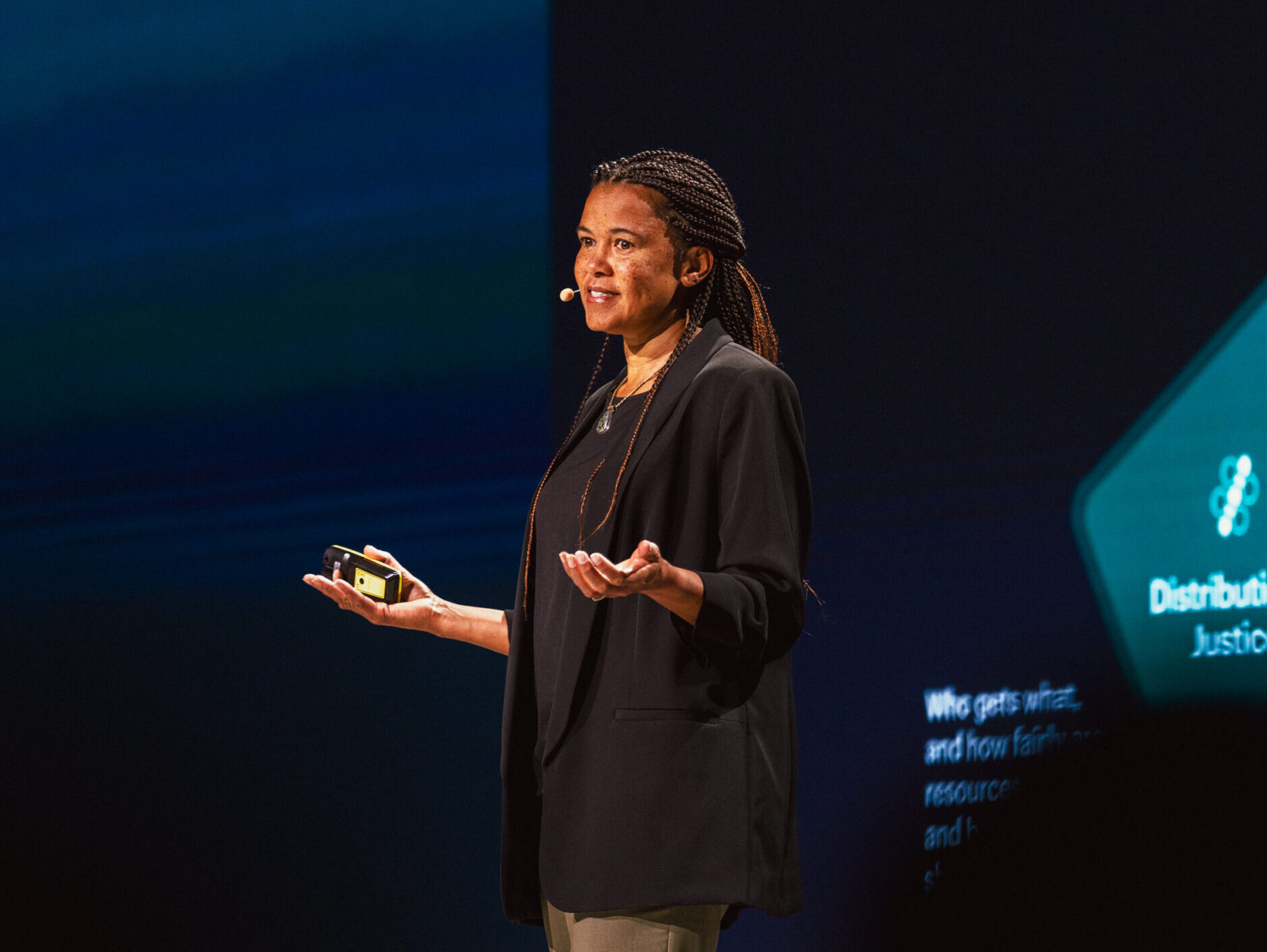Analysis outlines pathway to health, equity, and a liveable planet
The 2025 EAT-Lancet Commission today released its Report on Healthy, Sustainable, and Just Food Systems, presenting the most comprehensive global scientific evaluation of food systems to date.
Key findings:
- Shifting global diets could prevent up to 15 million premature deaths per year.
- Food systems are the largest contributor to the transgression of five planetary boundaries.
- Food systems currently account for roughly 30% of total greenhouse gas emissions globally. Transforming food systems could cut these emissions by more than half.
- Fewer than 1% of the world’s population is currently in the ‘safe and just space’, where people’s rights and food needs are met within planetary boundaries.
- The wealthiest 30% of people drive more than 70% of food-related environmental impacts.
Building on its influential 2019 report, the new Commission – comprising leading international experts in nutrition, climate, economics, health, social sciences and agriculture from more than 35 countries across six continents – finds that shifting global diets could prevent approximately 15 million premature deaths per year. At the same time, concerted global efforts to transform food systems could bring us back within planetary boundaries and cut annual greenhouse gas emissions from food systems by more than half compared with a business-as-usual scenario.
The Commission’s findings stress that just food systems will be essential to achieving improved health and social development outcomes. Fewer than 1% of the world’s population is currently in the ‘safe and just space’, where people’s rights and food needs are met within planetary boundaries. According to the report, currently almost a third (32%) of food systems workers earn below a living wage. Meanwhile, the wealthiest 30% of people drive more than 70% of food-related environmental impacts, and despite global calorie sufficiency more than 1 billion people remain undernourished.
The analysis warns that even with a complete global transition away from fossil fuels, food systems could still push temperatures beyond 1.5°C. The planetary boundaries framework defines nine key Earth system processes that regulate life on Earth. The world has already passed six of these nine boundaries: climate, biodiversity, land, freshwater, nitrogen and phosphorus pollution, and novel entities (pesticides, antimicrobials, and microplastics). Food systems are the largest contributor to five of these transgressions and contribute around 30% of greenhouse gas emissions globally.
Johan Rockström, Commission Co-Chair and Director of the Potsdam Institute for Climate Impact Research, stated: “The report sets out the clearest guidance yet for feeding a growing population without breaching the safe operating space on Earth set by the planetary boundaries. It also exposes the stark winners and losers in today’s food systems, where entrenched power dynamics drive deep inequities. By uniting the latest science on health and climate, it shows that what we put on our plates can save millions of lives, cut billions of tonnes of emissions, halt the loss of biodiversity, and create a fairer food system. We now have robust global guardrails for food systems, and a reference point that policymakers, businesses, and citizens can act on together. The evidence is undeniable: transforming food systems is not only possible, it’s essential to securing a safe, just, and sustainable future for all.”
Analysis shows that reshaping systems could deliver returns of $5 trillion a year through better health, restored ecosystems, and climate resilience – more than ten times the $200-500 billion investment* needed to drive food systems change. Achieving these goals requires urgent policy action, dietary consumption transformation, and a realignment of global financial incentives to support just, resilient, and sustainable food systems.
Drawing on the most recent evidence and advanced modelling, the report sets the boundaries of how 9.6 billion people globally can eat nutritiously and equitably within critical environmental boundaries by 2050. The report shows that changes to the way we produce and consume food can improve global health, achieve food and nutrition security, build stability and resilience, and contribute to critical strategies to improve equity and working conditions in food systems.
Shakuntala Haraksingh Thilsted, Commission Co-Chair and Director for Nutrition, Health and Food Security at CGIAR, commented: “Food is at the heart of both human well-being and planetary health. Right now, too many people who grow and process our food are underpaid and excluded from basic protections, while the environmental and health costs fall hardest on the most vulnerable. Our findings make it clear that transformation must go beyond producing enough calories. It must guarantee the right to food, fair work, and a healthy environment for all. Only when we share the benefits and burdens more equitably can we ensure that food systems are within planetary boundaries and create a safe and just space where all people can flourish.”
A fairer distribution of resources, benefits, and costs is required to ensure that food systems are sustainable for both people and the planet. This includes the social foundations that enable people’s right to food, decent work, and a healthy environment. The Commission maintains that truly effective transformation must consider both social foundations and planetary boundaries to create a safe and just future for everyone.
As part of the Commission’s work, thirteen independent modelling groups assessed the potential impacts of food systems change on five of the planetary boundaries: climate, land, freshwater, nutrients pollution, and novel entities (pesticides, antimicrobials, and microplastics). This work outlines the potential of food systems transformations that include the adoption of healthy diets, reduced food loss and waste, and improved production practices to advance human health and reduce pressure on the environment. The analysis integrates diverse datasets, including diet and health outcomes, into a unified framework that maps a safe and just operating space for food systems globally.
Across all regions, the analysis reveals a common shortfall: diets consistently lack sufficient fruits, vegetables, nuts, legumes, and whole grains. In many places, the analysis also finds that diets contain excess meat, dairy, animal fats, sugar, and excessively processed foods. Building on existing data, the 2025 Commission has strengthened evidence of the benefits of the Planetary Health Diet, which sets out recommendations for healthy diets that ensure nutritional adequacy, support optimal health outcomes, and can be adapted to different contexts and cultures. It emphasises a plant-rich diet, with optional, moderate amounts of animal-source foods and limited added sugars, saturated fats, and salt. There is also good evidence that adoption of diets in line with the Planetary Health Diet would lower the environmental impacts of most current diets.
Walter C. Willett, Commission Co-Chair, Professor of Epidemiology and Nutrition at Harvard T.H. Chan School of Public Health, said: “The Commission’s findings reinforce that the Planetary Health Diet is good for both people and the planet. By increasing the production and consumption of whole grains, fruits, vegetables, nuts, and legumes, we can improve health outcomes everywhere while respecting cultural and regional traditions. But diets are just one part of the picture, and transformation requires action across the whole system. The eight solutions we set out provide a practical roadmap to unlock transformation at scale. We are at a global crossroads, and governments, businesses, civil society, and individuals all have a role to play in realigning food systems for the benefit of all people and the planet.”
Based on the report’s findings, the Commission outlines eight potential solutions aimed at advancing health, environmental, and justice goals:
- Protect and promote traditional healthy diets
- Create accessible and affordable food environments that increase demand for healthy diets
- Implement sustainable production practices that store carbon, create habitat, and improve water quality and availability
- Halt agricultural conversion of intact ecosystems
- Reduce food loss and waste
- Secure decent working conditions across the food system
- Ensure meaningful voice and representation for food systems workers
- Recognise and protect marginalised groups
Each solution is supported by a menu of concrete actions identified by the Commission as critical for transforming food systems, such as integrating traditional, healthy foods into dietary guidelines, supporting local seed systems, using food loss and waste, and improving agroecological practices to conserve ecosystems. It also calls for subsidizing reforms that make healthy and nutritious foods more accessible, and for regulatory and advocacy mechanisms that support decent work and meaningful representation for food systems workers. A just transformation requires building coalitions with actors both inside and outside of the food system, identifying priority actions, developing national and regional roadmaps, unlocking finance, and putting collaborative plans into action. These actions provide a guide for public, private, and civil society stakeholders to act together for meaningful progress.
About EAT
EAT is an international non-profit organization founded by the Stordalen Foundation, the Stockholm Resilience Centre and Wellcome Trust, working towards catalyzing a global food system transformation. Our vision is a fair and sustainable global food system for healthy people and planet – leaving no one behind. The organization connects and partners across science, policy, business and civil society to transform the global food system through sound science, impatient disruption and novel partnerships. Please visit EAT’s website for more information about our organization and the work we do.
About The Lancet Group
Founded by Thomas Wakley in 1823, The Lancet began as an independent, international weekly general medical journal with the vision that it should drive social and political change through advancing medical research and science for the greater good. Since its founding, the journal has evolved to include 26 titles that are part of The Lancet Group while retaining the core belief that medicine must serve society, that knowledge must transform society, and that the best science must lead to better lives. Learn more: www.thelancet.com
Remaining one step
ahead
of the curve.
Our Cultures, Our Meals: Cooking for Planetary Health
Cooking for Planetary Health brings the 2025 EAT-Lancet Report to life through food and culture, showcasing the plant-rich traditions of the Mediterranean and Asia.

The 2025 EAT-Lancet Commission Livestream
The official launch featured presentations of the Commission’s key findings, perspectives from leading scientific and policy voices, and a global dialogue on how to translate science into action.
